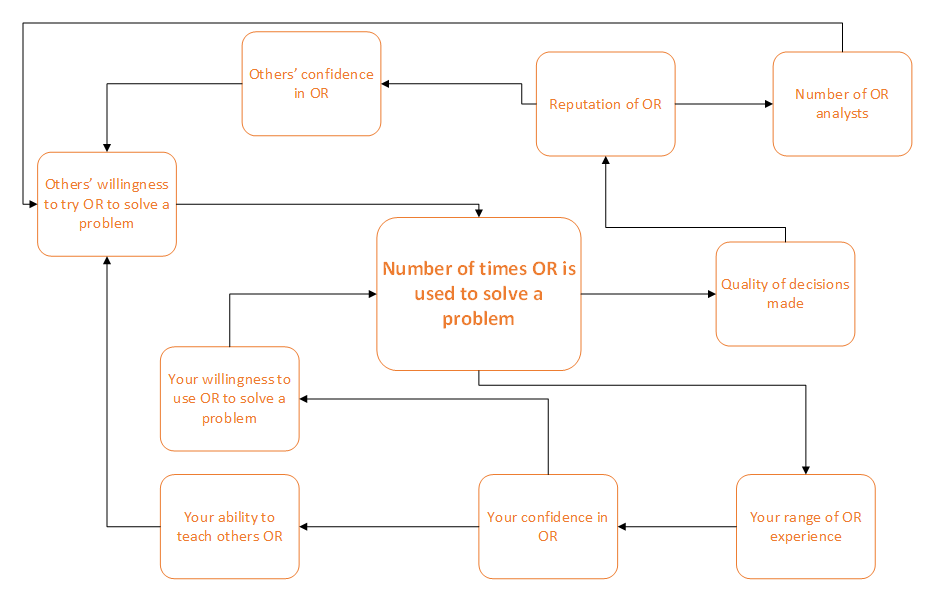The Operational Research (OR) Society describes operational research as the art and science of problem solving. It is a scientific approach to the solution of problems in the management of complex systems that enables decision makers to make better decisions.
OR is used by organisations of all sizes, including businesses across all industry sectors, government and other public sector bodies, charities, communities and even individuals. It informs strategic, tactical and operational decisions as well as assisting in the design of public policy – but it can also be used in every day decision making in our personal lives too.
Recently, I gave a talk at the Government Operational Research Service’s (GORS) conference on how OR can be used, and specifically in contexts that aren’t necessarily in the project in front of you in your day-to-day role.
Many operational researchers will have projects in our work or studies that we can apply operational techniques, methodology and thinking to. I often hear people worry, particuarly those early in their career, that these projects are not giving them the breadth of experience they are hoping for or feel they need when applying for other roles.
Luckily, there are other ways we can all apply OR in our lives, giving us that extra exposure and practice.
These include: solving problems in wider contexts or our place of work/study; supporting others in your teams/groups; our personal lives.
To apply OR in these areas, you need to be proactive and take the opportunities as they come up. Here’s what's needed to do this:
- Gain an understanding of all possible OR techniques – so get as much exposure to other people’s work as possible (see the many events The OR Society runs)
- Have the inspiration to make the connection – the best way to do this is to practise
- Allow time and space to apply the technique – your line manager/supervisor should be able to help you
- Work in a supportive environment – reach out to your fellow operational researchers if you are facing barriers.
I tend to use softer OR skills in my personal life, not least because they are often quicker and easier to bring people along. I have used:
Multi-Criteria Decision Analysis
- I have decided on my next career move (and in this instance I realised that I really wanted the option that came out second, so I ignored the result, which in this context is allowed)
- I chose the house I wanted to buy based on operational research techniques.
Causal Loop Diagrams
- At work, I identified areas we should focus on to reduce employee churn rates after analysing their exit interviews
- I have taken a moment to identify why I was so worried about my workload, and what the common themes I needed to prioritise were (it was quality assurance processes).
General Problem Structuring
- I have mapped out process flows of complex modelling systems, informing further discussions with digital architects and teaching new starters how modelling modules were connected
- I created a "hierarchy of need" to put perspective on unnecessary stress during wedding planning (yes, my fiancé was baffled).
I recommend researching these techniques further if you are not familiar with them or ask others around you for their advice.
Ultimately, I believe that OR can be an effective tool for making decisions. I want to use it where I can, and I want others to use it if they would benefit. If I can increase the chances of that happening, I suspect the consequences will have a wide-spread, positive effect. If only there was a way to communicate this…

Robyn Smith is the demand analysis team lead at the Department for Transport